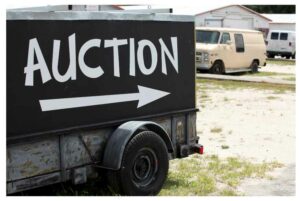How To Buy Car From Auction Without Dealer License?
This article explains how to buy a car from an auction without a dealer license, including potential opportunities like the Salvation Army car sales, known for their transparent auction process. We’ll cover essential preparation steps and bidding strategies for various auctions. Discover the rules, registration details, and financial planning required to set a realistic budget and avoid overspending. Our guide will help you navigate the auction environment confidently, allowing you to make a smart purchase at a car auction, such as those held by the Salvation Army, even as a non-dealer.
Preparing for the Auction
If you’re looking to buy a car from an auction without a dealer license, there are essential things to consider.

First, you’ll want to choose the right car for your needs and preferences.
Secondly, gather all the necessary documents such as identification, proof of insurance, and payment method.
Lastly, it’s crucial to set a budget and stick to it to avoid overspending.
Choosing the right car
When selecting a vehicle, especially if you’re considering attending a car auction in Florida, it’s crucial to understand the process and what might be required of you. For instance, should you wish to host your own events, you might look into how to get a car auction license in Florida, which ensures you’re operating within state regulations.
Determine your budget and the type of car you need. Consider the car’s age, mileage, condition, and any previous damage. Research the market value of similar vehicles to determine a fair price.
Before you bid, particularly at an auction where the pace can be fast and decisions immediate, it’s essential to inspect the car thoroughly. Check for signs of damage, rust, or mechanical issues. Taking the car for a test drive can also be an excellent opportunity to listen for any unusual noises that could indicate underlying problems.
Furthermore, reviewing the vehicle’s history report is indispensable to identify any accidents or title issues, ensuring no surprises after your purchase. By taking these steps and being fully informed about the requirements, such as how to get a car auction license in Florida, if you’re looking to become more deeply involved in the auction scene, you can confidently select the right car that meets your needs.
Gathering necessary documents
To complete the necessary paperwork for participating in an auction, gather all the required documents and organize them neatly in a folder.
Ensure you have your valid driver’s license, which will be needed for identification purposes.
Bring your proof of insurance, as most auctions require it before allowing you to bid on a vehicle.
It would be best to have your payment method ready, whether cash, a cashier’s check, or a bank letter of credit.
It’s essential to have your financial information in order, including proof of funds or a lender pre-approval if you plan on financing the purchase.
Lastly, don’t forget to bring your auction registration form, which can usually be completed online or at the auction location.
By gathering all these necessary documents, you’ll be well-prepared to buy a car from an auction without a dealer license.
Setting a budget
Plan your finances carefully and visualize your spending limits to ensure you stay within your desired budget when participating in a car auction.
Determine how much you can afford to spend on a car, considering not only the auction price but also any additional fees and costs such as transportation and repairs.
Consider getting pre-approved for a loan or securing financing beforehand to have a clear idea of your budget.
It’s essential to be realistic and stick to your budget to avoid overspending and potential financial strain.
By setting a budget and sticking to it, you can make informed decisions and increase your chances of finding a great deal at the auction.
At the Auction
When you’re at the auction, you should understand the bidding process to make informed decisions.

Pay attention to the auctioneer and the bids being called out, and be ready to raise your paddle when you want to bid.
Take the time to thoroughly check the car’s condition before placing your bid, as this will help you avoid any surprises later on.
Understanding the bidding process
If you’re considering How to Sell Your Car at Auction, knowing the bidding process from the buyer’s perspective is crucial. During the auction, you’ll witness participants, perhaps future buyers of your car, energetically raising their paddles to bid. To sell your car effectively, it’s essential to grasp what drives the bidders, recognizing that they will have set a maximum bid for themselves and will be mindful of not exceeding it amidst the auction’s thrill.
The auctioneer will kick things off with an opening bid, and from there, participants raise the stakes. The car goes to the highest bidder once no further raises are made. As a seller, understanding this rhythm is key to setting a reasonable reserve price for your vehicle and anticipating the final sale price, including any auction house fees or premiums.
Being well-versed in these nuances not only prepares you for buying a vehicle but also equips you with the insight needed to sell your car at auction effectively. Consider the buyer’s perspective to set a competitive yet fair reserve price that reflects your car’s worth and maximizes your chances of a successful sale.
Checking the car’s condition
Take a moment to carefully inspect the vehicle’s condition at the auction to ensure you’re making an informed decision.
Start by examining the car’s exterior for any visible damages or signs of wear and tear. Check for any dents, scratches, or rust that affect the overall appearance and value of the vehicle.
Next, open the doors and inspect the interior. Look for any stains, tears, or odors indicating poor maintenance or neglect. Test all the buttons, switches, and controls to ensure they function correctly.
Don’t forget to check the mileage on the odometer and compare it to the vehicle’s age.
Finally, pop the hood and inspect the engine. Look for any leaks, loose parts, or unusual noises.
Taking the time to examine the car’s condition thoroughly will help you avoid surprises and ensure you get a good deal at the auction.
After the Auction
Now that you’ve successfully won a car at the auction, it’s time to go through the process of paying for it and completing the necessary paperwork. You’ll need to arrange for payment, which can usually be done through various methods such as cash, certified check, or financing.

Once the payment is settled, you must complete the paperwork. This includes transferring the title and registering the vehicle in your name.
Paying for the car
When paying for the car, you must have your payment ready before the auction ends. Most auctions require you to pay in full immediately after winning the bid, and they have specific payment methods they accept, such as cash, certified check, or credit card.
Make sure you have the necessary funds available and that you understand the auction’s payment requirements beforehand. If you’re paying with cash, be prepared to bring the exact amount, as auctions naturally don’t provide change. If you’re using a certified check or credit card, verify with the auction if there are any additional fees or restrictions.
It’s essential to be prompt with your payment to avoid penalties or losing your winning bid. Once your payment is settled, you can move forward with the necessary paperwork and start transferring the car into your name.
Completing the paperwork
Once you’ve successfully secured your winning bid, it’s time to tackle the necessary paperwork to make the car yours officially.
The first step is to obtain a Bill of Sale from the auction house. This document will outline the sale details, including the purchase price, vehicle identification number (VIN), and other important information.
Next, you’ll need to obtain a title for the car. This can usually be done at the Department of Motor Vehicles (DMV) or through a title service. Bring the Bill of Sale, proof of insurance, and any other required documents.
Once you have the title, register the car in your name. This involves filling out a registration form, paying required fees, and providing proof of insurance.
Finally, remember to transfer the plates from your old car or obtain new ones for the auction car.
Completing the paperwork seems daunting, but with the proper preparation and attention to detail, you can navigate the process successfully.
Conclusion
You’ve bought a car at an auction without a dealer license by researching, setting a budget, and preparing financially. At the auction, you bid wisely and handled post-auction paperwork and vehicle pickup. This proves that with careful planning and strategic bidding, you can successfully purchase a car from an auction. Remember to inspect vehicles, stay within your budget, and with persistence, you can find a great deal on a car that suits you.


